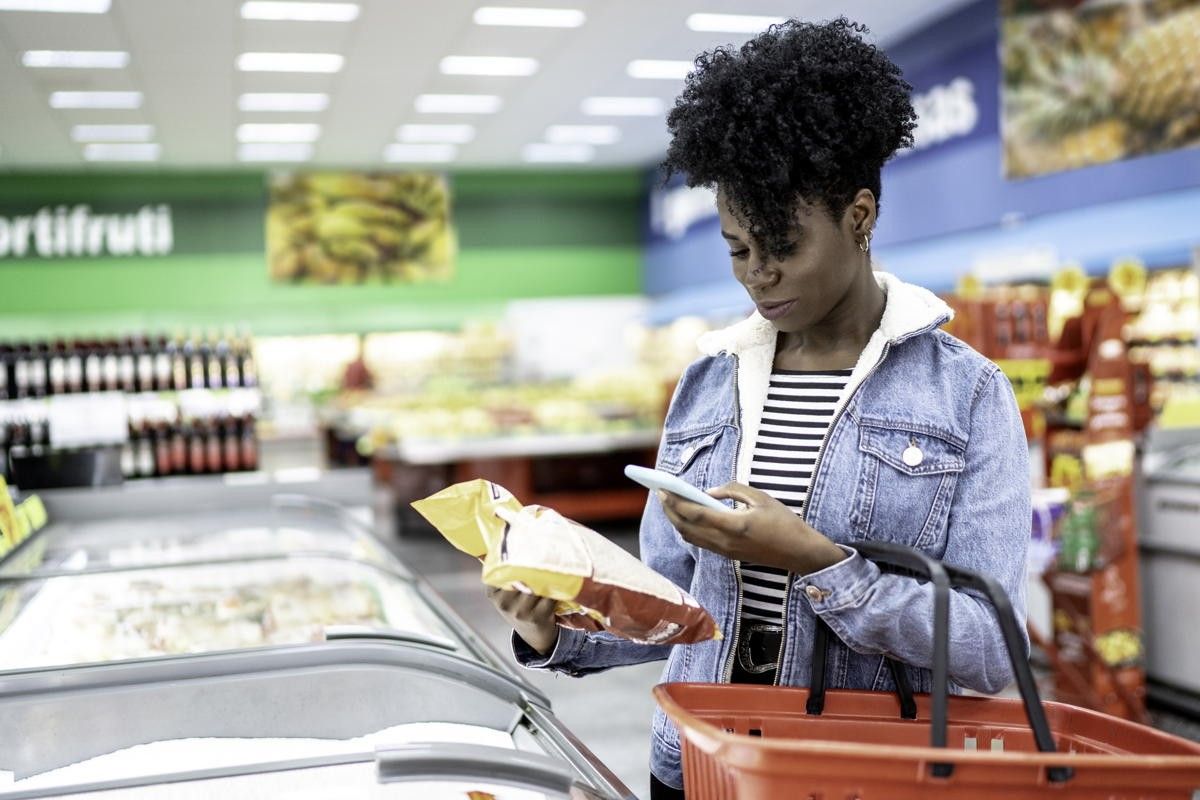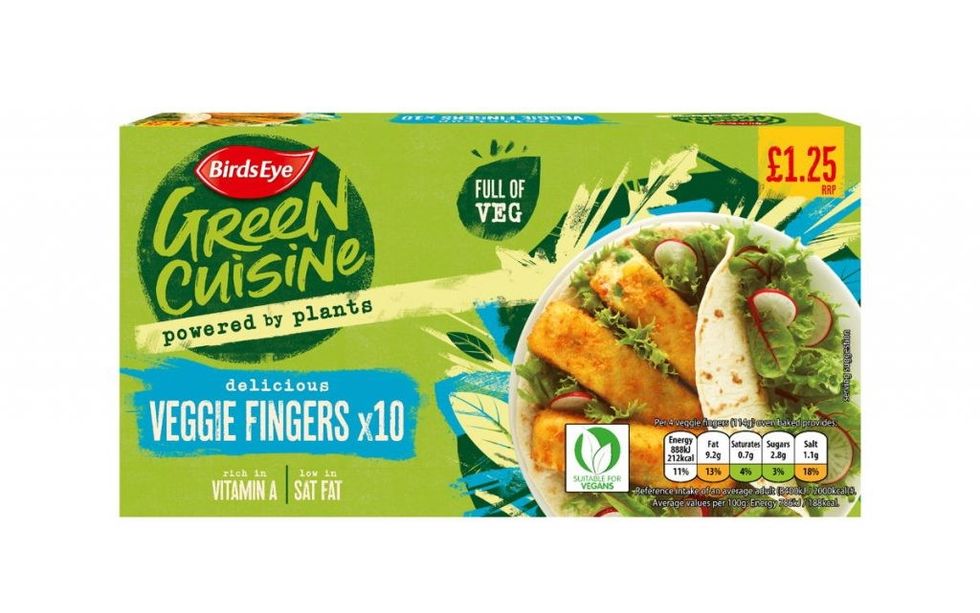One important development to come out of the 2020 “Plague Year” has been the unprecedented upturn in the consumption of frozen foods. As consumers stocked up and planned on staying home, their freezers grew full. They even bought extra freezers. Asian Trader talks to Chris West, channel controller at Birds Eye, about the Big Freeze that is taking place.
AT: Despite all the disasters of 2020, the frozen food sector seems to have had a remarkably good year. What do you think the implications are for 2021, especially with the pandemic conditions now being complicated by Brexit?

CW: The word “disaster” is a fascinating one. I think we need to distinguish two elements: there’s the business performance and then there's the human element. And I think on the human element there's been some tragic losses within the convenience market which has galvanised many retailers, and it's made people realise how great the entrepreneurial spirit is in the sacrifice the retailers have gone to.
From a business perspective, and specifically frozen, it has seen growth of over 13 per cent year on year as a category, and Birds Eye are growing ahead of this with all of our core categories in growth. Penetration is up by over 30 per cent this year.
What we've seen is that as a result of lockdown, in May alone, home cooking was up by 35 per cent. Our Goodfellas brand grew at double the category growth and pizza as a category saw 1.7 million new buyers during lockdown one. It became a wonderfully convenient and simple meal as people juggled everything that was happening in their lives, that had been turned upside down.
From a supplier perspective, one of our biggest challenges at that time was keeping up with demand. Sales at least doubled over an eight-week period of time, with some weeks sales trebling. It was unprecedented.
One of the things we did was to withdraw some of our lines and price-marked packs for a period of time, with the clear rationale being that we were able to achieve greater factory efficiencies of that equivalent product in a non-price marked pack. Wholesalers were supportive of it and retailers just adapted to it. And we're exceptionally grateful for that, and as soon as we could bring back the PMPs we did so.
AT: There were a lot of supply hiccups. Do you feel you had a bit of an advantage being in frozen food?
CW: Absolutely. Frozen food is a convenient option for people not knowing when they can get back out to stores.What we've worked on for a number of years is that perception change in the quality of products. And that's coming through in feedback that we're receiving now, that the perception of frozen food and the quality of them has vastly improved. We expect some of that benefit – jumping forward to look at 2021 – we anticipate many of those shoppers remaining with us. And with whatever happens with Brexit, we anticipate some of those benefits for frozen foods with regard to particularly when it comes to wastage of the products. If somebody ever has any wastage with frozen food generally, it's because the freezer has broken down in-store!
AT: We're in fact hearing from retailers saying,“I've just had another couple of metres of freezer put in and you know, that's what I'm devoting more space to.” You've seen this as well, have you?
CW: Yeah, absolutely. We've seen that. And from research we’ve carried out, another 19 per cent of retailers are looking to invest in in freezer space. The mad thing is from a frozen perspective in that as well as the freezer space in convenience stores increasing, because of the pandemic customers are also buying more freezers for the home. So overall, there’s a far greater capacity now. Go to AO or Argos and you can hardly get hold of them.
AT: Will the big change to ordering online in the past year affect the multiples more than the smaller shops and how will it affect delivery and supply of frozen products?
CW: The mults will still achieve the bigger shop but the planned top-up, which we know is the number-one initiative within the channel, means there's a big opportunity for convenience retailers to grow by tapping into that mission. Some of the key growing trends that we've seen are around the meal-deal occasion. So having that meal occasion for that evening or for a couple of evenings is an essential, growing trend for shoppers to tap into. And that can very much link to delivery in the convenience channel.
AT: There was always the paradox – you mentioned it – about the quality question. Frozen food was seen to be of inferior quality in certain respects to fresh food. On the other hand, there was always the fact that frozen food was known by the cognoscenti to actually be much better in certain respects.
CW: I think that will continue to be an evolution of people's taste preferences. And one of the products that we're launching is to tap into that is our green cuisine range of vegan products. So we've got sausages, burgers, and veg fingers. And it's that perception of quality, it's people's diet, and habits, which are changing as well. So you look at trends, and there’s Veganuary, which has now become a big thing, with gym membership spiking in January, and people look at their diet after having over-consumed at Christmas. So we're going to have a big focus on our green cuisine products there. But I think you're right, they'll continue to be an enhanced demand from shoppers around quality.
Our top nine products deliver 50 per cent of our sales, our top 20 products deliver 80 per cent of our sales.So what we've done, to link in with the operational efficiencies, is we've got a core range of products, which will be fully supported with promotional campaigns, etc.
That ranging of products includes what we previously classed as our value offering, and the value offering some of these focuses upon San Marco pizza, priced at £1.39. And the value new fish finger offering priced at £1.25. So previously, we kept them out of the core range, but recognising how the environment will change next year, they'll very much be included as part of the core range of 20 products that we have.
It’s a difficult balancing act with those products, and they have such a core following and they are a mass market, a total market product. It's about retailers, and they know their stores far better than we do.
AT: What kind of feedback are you getting from convenience retailers at the moment?
CW: Brands are working very well for them. What people have realised is that they should get the best sellers which are going to be supported by promotional campaigns that will feature in the media, because those are the ones that people are going to know and recognise. We’ll have PMPs and we will adapt the promotional strategy to do what's right for that account. We will have some single price-down promotions we'll also have meal deals as well.The business is fully committed to a PMP strategy.
Birds Eye will continue to be the hero brand because of the associations and awareness. And we’ve added Aunt Bessie and the Goodfellas range. What that gives us is scale, and it also gives us the ability with meal deals to create that that whole offering, working simplistically with retailers and wholesalers. The only part that we are missing is desserts – although we have some Aunt Bessie’s deserts and we have good old Arctic Roll. We have everything wee need for a complete meal deal with the exception of a full range of desserts.What we typically tend to do on a meal deal is either partner with another brand, or on many occasions will bring an open label product into that meal deal as well.
AT: I have to say that 2020 is looking very, very interesting for the frozen sector, given the changes in lifestyle we’ve seen – and which will probably remain, do you think?
CW: I'm sure this isn't a radical view, but even once we're in summer again, no restrictions, I think it'd be crazy to think that everyone will just go back to the five-day workweek and the commuting on the train. There's still going to be a massive middle ground between the extremes of lockdown and what we had in January 2020. A lot of those lockdown habits will remain, just because that's how people are used to working from home now, they have they walk around lunchtime, or they go to the shop after work. That will probably stay even when you've got the option of going back to the office five days a week.
There are some positives amongst all of the negatives and sadness, there are a lot of positives that have come out of the last year.




